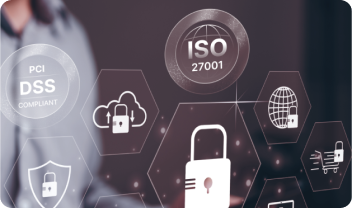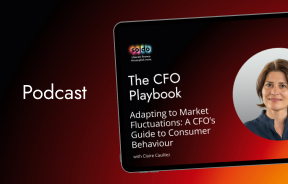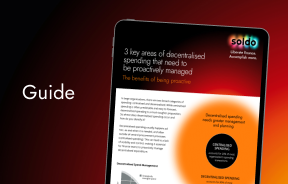Interest in sustainable investing is exploding. In 2022, 65% of all investment in European exchange-traded funds (the most popular type of investment among retail investors) went into “ESG-compliant” products.
Businesses are under growing pressure to present themselves as ethical, and environmentally and socially responsible.
ESG (Environmental, Social, and Governance) has become one of the most commonly bandied-about terms in business circles. And ESG ratings and data have grown into a $1.3 billion (around £1.08 billion) industry.
But is ESG actually an effective way to evaluate organisations’ impact on the planet? Or is the term close to becoming — if not already — a meaningless buzzword?
What is ESG?
Essentially, ESG is a framework to help with sustainable investing. It measures the overall impact of a particular business on our planet. The assessment is carried out by evaluating performance under three key pillars:
Your effect on the environment (Environmental)
These include considerations such as:
- Your carbon footprint
- How much energy you uses to make your products or deliver your services
- How you source raw materials
- Waste management practices.
Your Impact on the communities you operate in (Social)
- How do you engage with consumers, suppliers, and other stakeholders?
- What are your employment practices like?
- And what kind of approach do you take to product safety and protecting the locals’ quality of life?
How your business is managed (Governance)
- Are there checks and balances in place to ensure management behaves ethically and responsibly?
- Do you have a diverse leadership team?
- Is there a culture of inclusion?
- Do you engage in government lobbying or other political activities?
Sustainable investing: not a new thing
Sustainable investing might seem like a new-fangled invention. But letting ethics drive investment decisions isn’t a new concept.
When the Methodist Church and the Quakers began investing on the stock market in the 19th century, they intentionally avoided companies involved in alcohol production, gambling, and other activities they considered morally questionable.
The idea caught on, and the first ethical investment fund — a mutual fund, called the Pax Fund, set up in protest at the Vietnam War — launched in 1971.
ESG takes things further. It provides, in theory, a set of criteria that lets investors assess how ethical and sustainable any business is.
The idea is that businesses with high ESG scores are bringing about positive change. And, so, are more likely to keep thriving. While those with poor scores are harming the planet, putting their long-term future at risk in the process.
The benefits of ESG and sustainable investing
Mainstream thinking around ESG is that it’s critically important. For two reasons.
First, at a time when people are increasingly worried about climate change and actively seeking out sustainable businesses, ESG offers a set of objective criteria to judge businesses.
There are those businesses striving to improve the planet – and those that, despite billing themselves as sustainable, have questionable credentials. Or, as the ICAEW puts it, ESG is “a mechanism to hold institutions accountable for their operations…”
Second, and more to the point, ESG’s proponents argue it offers compelling financial benefits. Studies suggest that investments with high ESG scores deliver above-market returns. This is typically attributed to the fact that ESG-compliant, sustainable investing is better in the long term.
ESG also makes it possible to identify opportunities and risks that wouldn’t turn up in a traditional financial analysis. Such as the benefits of creating clean, renewable energy, or avoiding the harms of child labour.
Most significantly, ESG is sometimes boiled down to a question of supply and demand. More and more, the argument goes, investors want to put their money into sustainable businesses. So, to remain competitive, investment products need to be sustainable. And ESG offers a way to ensure this is the case.
Beyond the hype: what if Emperor ESG has no clothes?
While, at first glance, it’s hard to disagree with the idea behind ESG, its detractors believe the arguments in its favour are fundamentally flawed.
According to Stuart Kirk, HSBC’s former global head of responsible investments, there are two key problems with ESG in its current form.
First, he says, the financial risks from climate change are being blown out of proportion.
“A common argument,” he says, “is that [climate change is] going to hit GDP in year number, whatever, 2100? They reckon it’s going to lop off 2.5%. Their worst case model lops off 5%.
“What they fail to tell everybody is that between now and 2100 the world is going to be between 500% and 1,000% richer. Lop 5% off that in 2100, who cares? You’ll never notice.”
Second, he says, humans have a track record of adaptation which climate risk models fail to take into account.
He explains:
“Imagine you’re in 1920 or 1930 and somebody said, ‘Stuart, what do you think the effect on growth will be of carbon emissions over the next 100 years?’ And I’d get out my model and go okay, well, there’s a lot of gas guzzling cars, there are a lot of ships, there’s a lot of industry that doesn’t look very good. And we would put together a really, really nasty outlook for today from what we knew.
“We would never have understood deindustrialization. Or the rise of the service economy. We would never understand how machinery is getting more efficient. Likewise, we have no idea what the next 50, 100 years are going to bring.”
The ‘perverse’ incentives of ESG
Kirk’s presentation was roundly condemned for “making light” of the climate crisis and ultimately cost him his job. But even some of his biggest detractors acknowledge that, from a purely financial perspective, he’s talking sense.
PGGM’s head of responsible investment Piet Klop, for instance, observed that: “It’s hard to deny that the ecosystem is going down the tubes [but] within the financial system as we currently know it [Kirk is] probably right…”
Similarly, in an article that ostensibly defends ESG, Peter Krull says bluntly that “many of the ESG funds that retail investors expect to be green are far from that.”
Echoing Kirk, Professor Hans Taparia, of the New York University Stern School of Business, believes the biggest issue with ESG is that it does things backwards.
Instead of scoring businesses on how ethical and environmentally and socially responsible they are, it measures how much carbon emissions, dodgy labour practices, and other ESG factors could harm financial performance.
This, he says, produces perverse results.
“McDonald’s, for instance, was given an upgrade of its ESG rating [in 2021] which cited reduced risks to the company’s bottom line as a result of changes that the company made concerning packaging material and waste.
“But greenhouse gas emissions from the operations and supply chain of McDonald’s, which is one of the world’s largest buyers of beef, grew by 16 percent from 2015 to 2020. Those emissions are a direct cause of climate change, but because [they weren’t seen] as posing a financial risk for McDonald’s, they didn’t negatively affect the rating.”
ESG: right idea, wrong approach?
With scientists issuing increasingly stark warnings about catastrophic climate change and the United Nations observing rising inequality across the globe, it’s clear that the way we do business needs to change. For both ourselves and the generations that will come after us.
From this perspective, ESG is perhaps a step in the right direction. In the sense that it embeds the impacts bad business practices have on society and our planet into our collective consciousness.
As McKinsey’s Sara Bernow notes: “ESG puts the spotlight on sustainability not only in those companies where it is obvious from a value-creation perspective but also where it has been less obvious yet the value-creation potential is still there.
“For example, a company’s ability to reduce its energy consumption is a huge value-creation opportunity.”
Is ESG fit for purpose?
But if intentions are to become action and, in turn, create real, lasting change, the way businesses’ ESG rankings are assessed may need to be rethought.
“One of the tragedies of this whole debate,” says Stuart Kirk, “is that we obsess about mitigation and not enough on adaption financing.
“There are 1000s of opportunities out there. We have a trillion dollar car company that nobody predicted five years ago, including myself, and they’re the sort of opportunities we need to invest in.”
Hans Taparia is even more scathing.
“The current system,” he concludes, “works well for Wall Street. It keeps the raters in business because it ensures that their customers, the investment firms, have lots of stocks with which to construct portfolios.
It enables financial institutions to present themselves as contributing to the well-being of society and the planet. And it allows them to charge higher fees to investors, because ESG funds are seen as different from conventional index funds, in part because they tap into investors’ consciences.
“But this system isn’t good for the world. Just regular capitalism at its slickest: ingenious marketing in the service of profits. The best approach would be to measure the costs to society and the environment that are not directly borne by companies.”
Visit our blog for more articles like this one or subscribe to get them direct to your inbox. Find out more about Soldo here.





























